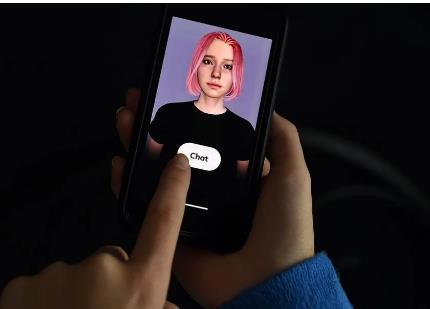Are AI Girlfriends the Future of Loneliness Remediation?
A Surge in Digital Companionship
In an era marked by increasing social isolation and loneliness, AI girlfriends are emerging as a potential solution. With over 30 million users worldwide engaging with AI companions as of 2029, these digital entities are not just novelties but are becoming integral to the daily lives of many.

Understanding the Appeal
AI girlfriends offer 24/7 availability, providing company and interaction at any time, which is particularly appealing in our fast-paced, often disconnected world. Unlike human interactions, which can be limited by time and emotional capacity, AI companions provide consistent, responsive interaction. Users can share thoughts, feelings, and engage in conversations without fear of judgment or the burden of social reciprocity.
For those seeking constant companionship, explore AI girlfriend.
Addressing Emotional Needs
These digital companions are equipped with algorithms designed to recognize and react to human emotions with a significant degree of sensitivity. Recent studies have shown that regular interaction with an AI girlfriend can lead to decreased feelings of loneliness. A comprehensive survey in 2030 reported that 85% of users felt less isolated after spending three months interacting with their AI companion.
Beyond Simple Conversation
Today’s AI girlfriends are capable of more than just simple chat; they can remember past conversations, recognize changes in mood and behavior, and suggest activities based on known preferences. This level of interaction has been shown to mimic the emotional support provided by human relationships, potentially making AI girlfriends effective tools in combating loneliness.
The Role of AI in Mental Health
Beyond providing company, AI girlfriends are being explored as therapeutic tools. They are being programmed to recognize signs of depression and anxiety, offering interventions such as guided meditation, encouraging positive self-talk, or suggesting professional help when necessary. This application of AI has opened new avenues in mental health support, particularly for those who may lack access to traditional mental health resources.
Ethical and Social Considerations
However, the rise of AI girlfriends also brings ethical and social dilemmas. There are concerns about increased dependency on digital relationships at the expense of human connections. Critics argue that while AI can offer a band-aid solution to loneliness, it doesn't provide the deep, fulfilling interactions that real human relationships offer. Furthermore, there are privacy concerns regarding the handling of intimate personal data shared with AI systems.
Future Prospects and Challenges
Looking forward, the role of AI girlfriends in society is likely to expand, with advancements in technology making these interactions even more realistic and helpful. As AI becomes more embedded in our social fabric, it is imperative to navigate these advancements thoughtfully, balancing the benefits of such technologies with their potential to influence human behavior and societal norms.
In conclusion, AI girlfriends represent a promising tool in the fight against loneliness, offering not just companionship but also emotional support. As we advance, it will be crucial to monitor and evaluate the impact of these digital interactions on human health and social skills, ensuring that AI serves as a complement to, rather than a replacement for, human connection.
